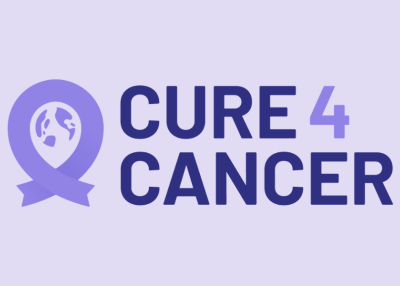Advancing Global Health Equity
Report

Cancer is a leading cause of death worldwide, accounting for approximately 10 million deaths every year. Many cancer deaths are preventable if the disease is detected early and treated effectively. Clinical trials represent the critical step in translating scientific discoveries into lifesaving for patients with cancer. However, access to clinical trials is limited to fewer than 5% of patients globally, with significant disparities among diverse communities.
A new report by The Asia Society Policy Institute’s Center for China Analysis and Cure4Cancer, Advancing Global Health Equity: Enhancing Clinical Trials Access and Cooperation to Save Millions of Lives from Cancer, finds that if China were to join the U.S.-led cancer research project Cancer Moonshot and its core initiative Project Orbis, could significantly increase the estimated number of new cancer cases represented amongst its members to approximately 46.88%. Furthermore, it could greatly streamline international regulatory processes and bolster global health equity by expanding access to clinical trials and precision oncology worldwide and the time needed to roll out new cancer treatments globally would significantly shorten, potentially turning a 10-15-year process into a 2-3-year process.
Project Orbis attempts to set up the international regulatory infrastructure needed to help achieve this. It establishes a unified system for simultaneous submission, review, regulatory action, and approvals of clinically significant new cancer treatments across its member countries, which currently include Canada, Australia, Switzerland, Singapore, Brazil, the U.K., and Israel.
Together, participating countries currently account for only 21.64% of new cancer cases worldwide in 2020 – hardly representative of the vast global cancer population, leaving shortcomings in the timeliness, diversity, and equity of the programs it supports for approval.
The quantity of data available to global researchers in China, with the world’s highest cancer patient population, is simply unavailable anywhere else. If China were to join Project Orbis, the estimated number of new cancer cases represented among its members would rise from about 21.64% to approximately 46.88%. The benefits of China joining Project Orbis could include:
- Standard setting;
- Urgency;
- Reducing costs for all;
- Reciprocity;
- Global multilateral leadership;
- Innovation and impact on the industry;
- Stabilize the U.S.-China relationship and promote world peace.
The report also comprehensively addresses potential obstacles and opposition to China’s joining Project Orbis point by point, discussing concerns related to biosecurity and human genetics, intellectual property protections, data quality and manipulation, LCA and process slowdown, and strategic competition and geopolitics.
Given the overwhelming benefits of having China join Project Orbis, the report authors recommend that policymakers work towards the signing of a limited confidentiality agreement (LCA) between the U.S. and China, a key milestone that would facilitate China’s entry. Beyond this specific case, the report also presents alternative strategies such as Project Pragmatica, cases including Indonesia, and other feasible methods, including promoting remote and hybrid treatment models and enhancing public awareness, to foster robust and inclusive international cooperation in the fight against cancer – the common enemy of humanity.
This is the first Cure4Cancer report of a series that will study global health equity issues. This first report will provide readers with a background on international cancer trials and show how the first case study on China, the country with the greatest cancer burden and highest number of cancer deaths, may help advance global health equity and accelerate the “cure for cancer” through regulatory harmonization initiatives such as Project Orbis.
Cure4Cancer (C4C) is an international movement that brings together patients, clinicians, scientists, policymakers, regulators, industry leaders, philanthropists, the media, and other closely related stakeholders in the global fight against cancer. The international movement is sustained through multi-stakeholder collaboration and cross-pollination among its global partners; thus, it cannot be limited to any single institution or country.


